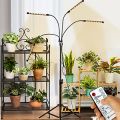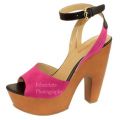Product Photographer vs. DIY: Which Is Best for Your Business?

You’ve got a product you’re proud of and are ready to showcase it to the world. But wait! The next step is crucial: getting those high-quality photos that will make your product pop online. The big question is, should you hire a product photographer or go the DIY route? Let’s dive into the pros and cons of each option to help you make an informed decision.
The Case for Hiring a Professional Product Photographer
Quality You Can’t Beat:
When it comes to first impressions, you only get one shot (pun intended!). A professional product photographer knows how to highlight the best features of your product. With their expertise in lighting, composition, and editing, they can transform an ordinary item into a visual masterpiece. They’re equipped with the right gear — from high-end cameras to specialized lenses — to capture every detail crisply and clearly.
Ever scrolled through an online store and seen photos that look dull or poorly lit? It’s hard to trust a brand when its product images look amateurish. A professional’s touch adds a level of polish that makes your products look more appealing and trustworthy. Customers are much more likely to buy when they feel confident in what they see.
Saving Time and Energy:
Let’s face it: taking great photos isn’t as easy as it seems. From setting up the lighting to editing the final images, the process can be time-consuming. Hiring a product photographer saves you from the hassle and lets you focus on what you do best — running your business. Instead of spending hours fiddling with camera settings or trying to find the right angle, you can leave it to someone who does this for a living. In the end, you get top-notch photos without breaking a sweat.
The DIY Approach: A Good Idea?
Budget-Friendly, But at What Cost?
If you’re just starting out or working with a tight budget, DIY photography might seem like the better option. It can be tempting to grab your smartphone, set up a makeshift studio at home, and start snapping away. It’s true — this route can save you some cash upfront. You won’t have to pay a product photographer’s fees, and you have full control over the creative process.
However, the cost savings might not be as significant as you think. For quality photos, you’ll still need to invest in some basic equipment like lighting kits, backdrops, and maybe even a decent camera. Plus, if you’re not familiar with photography, the learning curve can be steep. You could end up spending more time and money trying to get the right shot than you anticipated. And let’s not forget that subpar images can actually hurt your brand's image and sales.
Flexibility and Creative Control:
One of the perks of going DIY is having complete control over your photos. You can experiment with different styles, backgrounds, and settings to get the look you want. If you have a specific vision for your product images, DIY might give you the flexibility you crave. Plus, in this digital age, smartphones have impressive camera capabilities, and with the right setup and a bit of creativity, you can capture some pretty decent shots.
But here’s the thing: what looks good to you might not look good to your customers. There’s a fine line between amateur and professional, and even the most well-meaning DIY photos can end up looking unpolished if you don’t have the right skills or experience.
So, Which One Should You Choose?
Deciding between hiring a product photographer or going the DIY route depends on your specific needs and circumstances. If you’re looking for high-quality, polished images that will help your product stand out, hiring a professional might be the best investment. A skilled photographer has the experience and equipment to deliver top-tier photos that can boost your brand's credibility and attract more customers.
On the other hand, if you’re working with a limited budget and have a knack for creativity, DIY photography can be a viable option. Just remember that it requires time, patience, and a willingness to learn. You might save money upfront, but the trade-off could be time spent away from other important business tasks.
Conclusion:
At the end of the day, the choice between a professional product photographer and a DIY photographer boils down to your goals, budget, and skill level. A product photographer brings expertise and quality that can elevate your brand, while the DIY approach offers flexibility and cost savings. Both have their pros and cons, so weigh your options carefully.
Whichever path you choose, remember that great product photos are an investment in your business. After all, in the world of e-commerce, a picture is worth a thousand words — and potentially thousands of sales!
Other articles and publications:
Articles and publications of other companies:
- +1 (770) 690-9389
- 760 Vinca Ct, Alpharetta, GA 30005, USA
- www.etherartsus.com/







